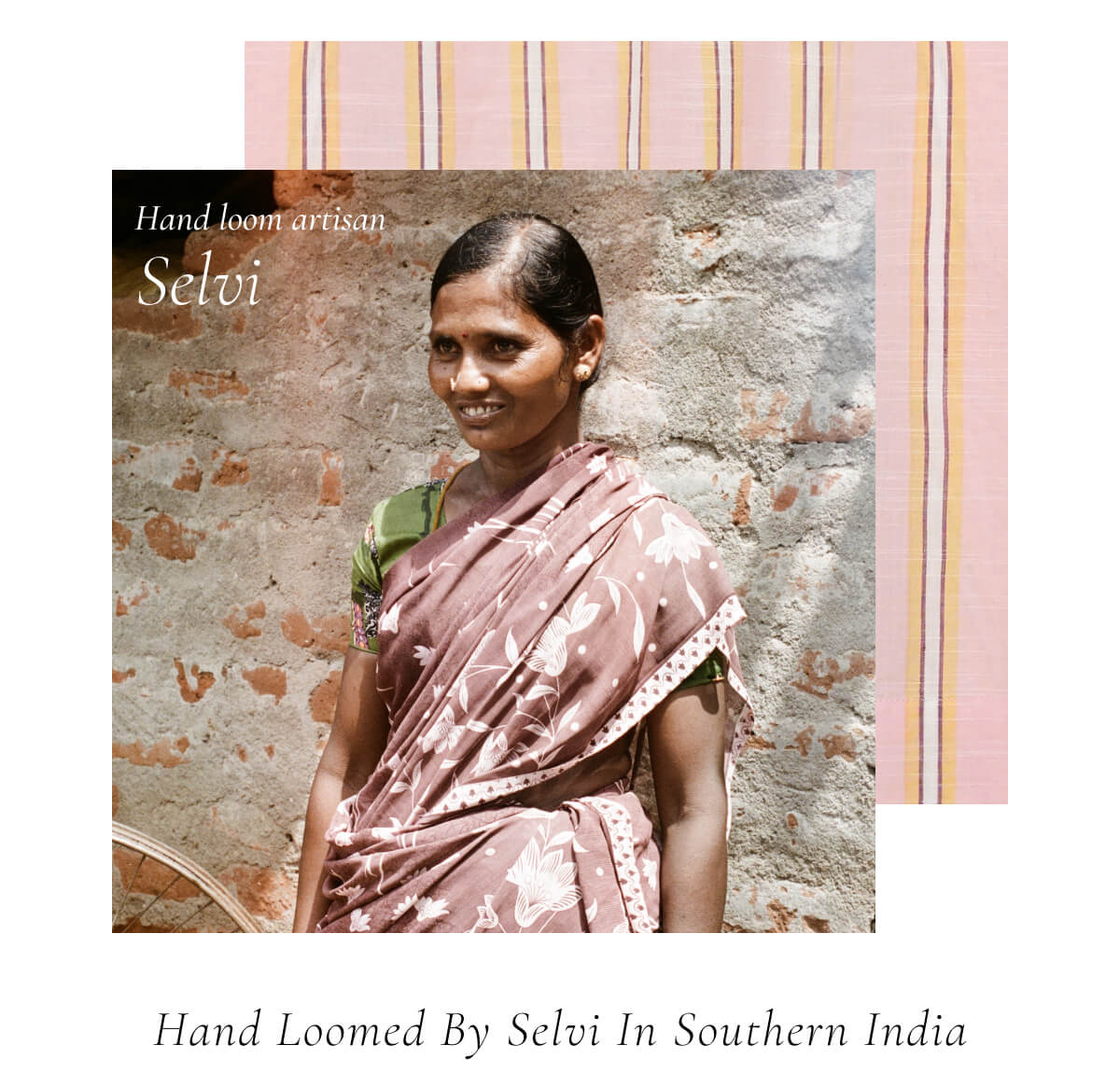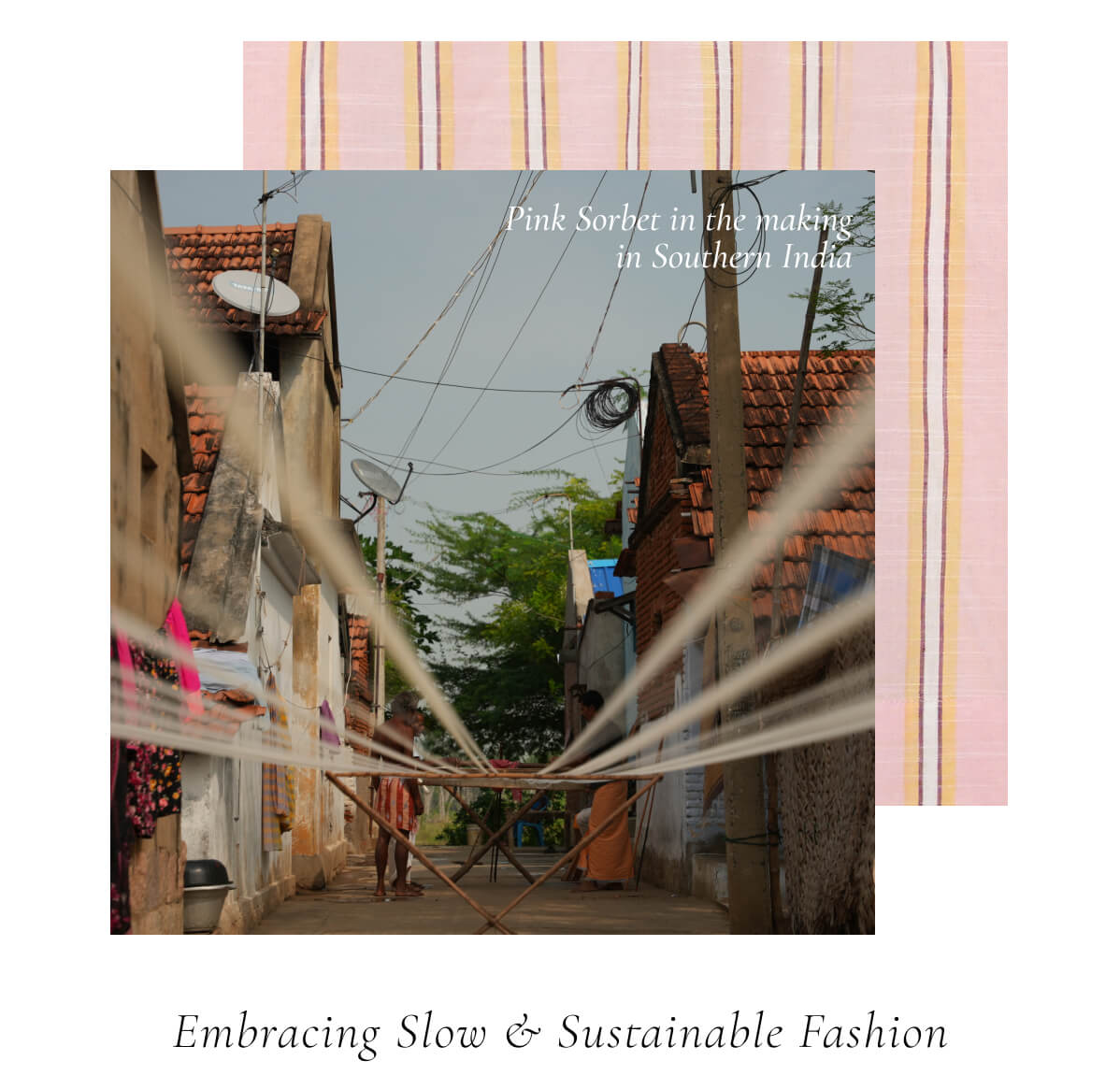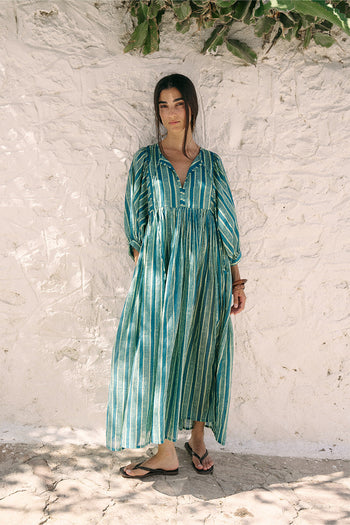The Making of Poet in Pink Sorbet


At Daughters of India, we believe in the beauty of embracing the slow – in our way of living and in the sustainable methods we abide by when creating our garments. Today, we are grateful to share a heartfelt story with you, one that intertwines the threads of tradition, craftsmanship, and a commitment to a more sustainable future.

Selvie is one of the handloomers who worked on the production of Pink Sorbet. Produced by hand without the use of electricity, the production was entirely sustainable. The weavers worked only in daylight hours at the pace of their choosing. As is the production process for all artisans working on Daughters of India garments.

Since the invention of electrical powered looms, the speed and efficiency of producing textiles at a lower cost alongside the rising demand for fast and inexpensive fabrics, small villages are struggling to uphold their generation-passed tradition of handloom weaving fabric.
In the village of Manamedu, where our garments are handloomed, the people live away from the mainstream and electricity is sparse, traditional handloom weaving remains one of their main sources of income. We’re grateful to be a part of supporting the continuance of this ancient tradition.

The purpose of slow fashion is to produce garments that are made in honour of our planet, and serve to support the people who make them. Slow fashion is a testament to the value of traditional craftsmanship and the importance of preserving them for future generations.
As with many cultural traditions, the knowledge and skills required to operate a traditional handloom is passed down from generation to generation. Due to widespread unemployment in the weaving industry, younger generations have been seeking experience in other trades, often only available far from their homes and familial livelihoods. As a result, handloom weaving has an expected lifespan of 10-15 years in Manamedu.
We hope, by supporting and spreading awareness of handlooming, this ancient tradition will live on for generations to come in Manamedu.








